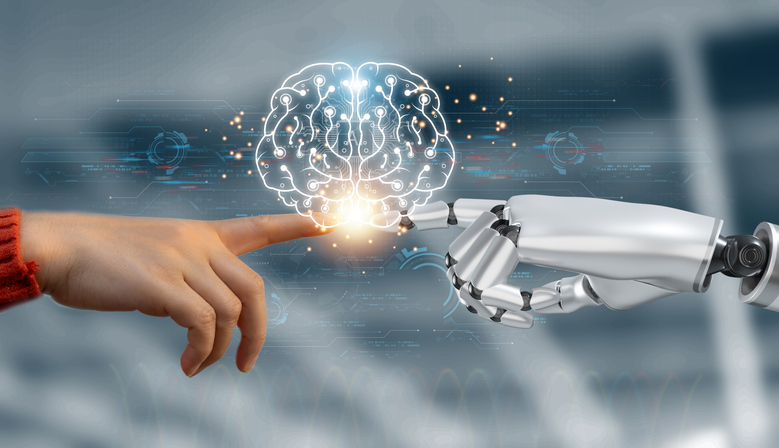AI and Intellectual Property: navigating a creative future
By Sharon Lemac-Vincere - Posted on 24 October 2024
Dr Sharon Lemac-Vincere takes a look at artificial intelligence and intellectual property and argues the future of innovation will be shaped by both human ingenuity and the capabilities of AI.
Artificial Intelligence (AI) is changing our world, from daily conveniences to potential groundbreaking inventions. Recent court decisions in Germany, Australia, and the United Kingdom reflect the complex relationship between AI and intellectual property (IP). These rulings not only highlight differing legal approaches but also raise critical questions about the future of innovation, creativity. Having followed Dr Stephen Thaler’s work for many years, it’s fascinating to see how his vision of AI as inventors has sparked both curiosity and controversy. When these cases were first lodged, there were undoubtedly a few smirks and whispers in the hallowed halls of legal courts, where the idea of a machine as an inventor seemed like science fiction. Just last year, I mentioned these legal cases and Dr Thaler's argument to a group of investors. The response was a chorus of laughter and comments of "madness": "Who would invest in a company where a robot owns the IP?" they asked. But these are the types of questions courts around the world are being asked to consider.
German Federal Court of Justice: a step forward
In June 2024, the German Federal Court of Justice made a landmark decision. Dr Thaler's patent application, which named his AI system DABUS as the inventor, was initially rejected because German law stipulates that only natural persons can be inventors. However, in a significant step forward, the court allowed the AI's contribution to be acknowledged in the legal paperwork, provided that a natural person is designated as the inventor. The court stated, "The designation of a natural person as inventor is also possible if a system with artificial intelligence has been used to find the claimed technical teaching". This means that while AI cannot be named as an inventor, its contributions can be recognised, offering a way to highlight the innovative role of AI in their inventions.
Australia: legal wrestling with AI inventorship
Australia's legal journey has been particularly tumultuous. In July 2021, the Federal Court of Australia recognised that an AI system could be named as an inventor. Justice Beach's statement, "An inventor is an agent noun, capable of encompassing both persons and entities that invent," was a bold assertion. However, this decision was overturned in 2022 by the Full Federal Court, which reinstated the requirement for human inventors. Justice Edelman poignantly remarked, "If that factual and legal position is correct, and Dr Thaler is not the inventor, then there is a significant hole in the operation of section [15] because it means that you can have an invention but no inventor." This highlights the ongoing struggle to balance technological advancements with existing legal frameworks. This decision was based on the interpretation of the Patents Act [1990].
UK Supreme Court: a complex landscape
The UK Supreme Court has taken a more conservative approach, echoing Germany's stance. The court emphasised that the concept of an inventor is inherently linked to human beings and maintained the status quo of requiring a human inventor. The court stressed, "Patent laws were designed with the understanding that inventors are human, reflecting a long-standing legal and philosophical association between human creativity and intellectual property rights." Interestingly, the UK Supreme Court also noted that the way Dr Thaler presented his arguments left room for further exploration. Lord Kitchin observed, "This is not the end of the issue," indicating that the evolving nature of AI might necessitate future legal adaptations.
Reviewing outdated legal frameworks
These court decisions highlight that our current legal frameworks, established in the 1980s and 1990s, are out of step with today's technological advancements. The German Patent Act dates back to 1980, and the Australian Patents Act was established in 1990, designed for a time when AI creating patentable inventions was pure science fiction. This raises an important question: should these legal frameworks be reviewed and updated through the lens of current social and technological changes?
If we are to update our legal frameworks, should we consider using AI and tools like ChatGPT to help craft new laws? Among the many achievements of Dr Thaler’s work, he certainly was ahead of the curve and demonstrated the age-old point that visionaries are often seen as foolish until their ideas become the norm. AI systems can analyse vast legal texts, predict outcomes based on precedent, and suggest new legislative language. Incorporating AI in the legislative process could lead to more comprehensive and forward-thinking laws that better accommodate rapid technological advancements.
Future implications for innovation and creativity
The use of AI in generating new inventions is not just a theoretical debate; it's a practical concern for the future of entrepreneurship, innovation, and creativity. AI systems can analyse vast amounts of data, identify patterns, and propose solutions far beyond human capability. This raises several questions: Will reliance on AI stifle human creativity? While AI can generate solutions, true innovation often requires a human touch—a spark of genius that machines may not replicate. Who is responsible when an AI-generated invention goes wrong? The ability of AI to create patentable inventions could shift economic power, potentially concentrating it in the hands of those who control advanced AI systems.
And so, the debate over AI and intellectual property is far from settled. Dr Thaler’s work was once met with smirks and whispers, but it now stands at the forefront of a legal and technological revolution. As we move further into the 21st Century, it’s clear that the future of innovation will be shaped by both human ingenuity and the capabilities of AI.










